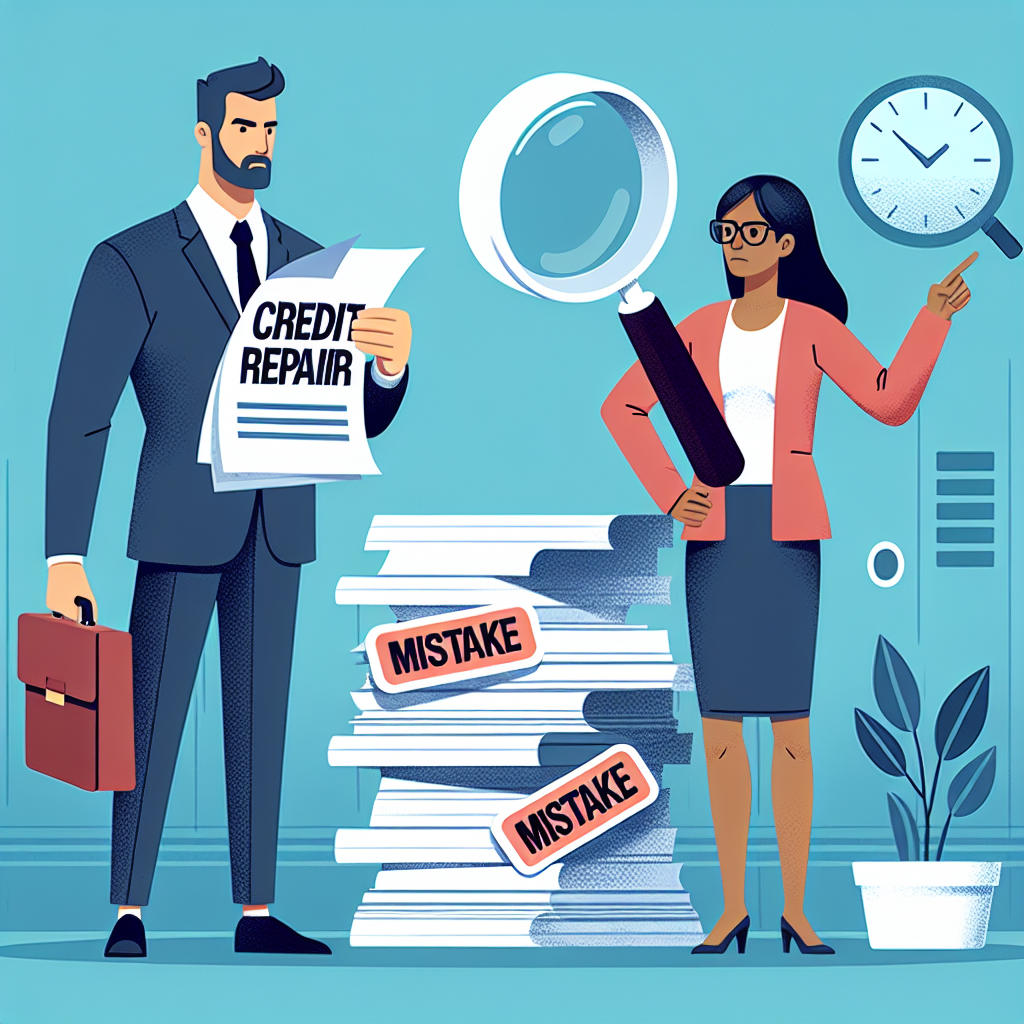In today’s financial landscape, maintaining a healthy credit score is crucial for securing loans, mortgages, and even jobs. While there is a wealth of information available on how to improve your credit score, many individuals still make common mistakes during the credit repair process. In this article, we’ll highlight the most frequent credit repair mistakes you should avoid to ensure a smoother path towards financial stability and a better credit rating.
1. Ignoring Your Credit Report
Why You Should Check Your Credit Report Regularly
One of the most significant mistakes people make is neglecting to review their credit reports regularly. Your credit report serves as a snapshot of your financial behavior and can contain errors that negatively impact your credit score. Failing to check your report means you could miss discrepancies that need addressing.
Tip: Review your credit report at least once a year—consider using AnnualCreditReport.com to obtain free copies from all three major credit bureaus: Experian, Equifax, and TransUnion.
2. Disputing Everything
Understanding When to Dispute Information
Another common mistake is disputing every negative item on your credit report without proper justification. While it’s essential to correct inaccuracies, disputing legitimate accounts can backfire, making you appear less credible to lenders.
Tip: Focus on disputing items that you can verify as incorrect, rather than disputing everything in the hopes of achieving an instant score boost.
3. Relying on Credit Repair Companies
Assessing the Need for Professional Help
Some individuals choose to hire credit repair companies, often believing they can achieve faster results. While reputable companies can help, many people fall victim to scams or pay for services they could easily do themselves.
Tip: Research any credit repair company thoroughly and understand your rights before committing to a contract. In many cases, you can dispute items directly with the credit bureaus.
4. Closing Old Accounts
The Impact of Account Age on Your Credit Score
One mistake people frequently make is closing old credit accounts, thinking this will improve their credit score. However, older accounts contribute positively to your credit history length, which is an important factor in calculating your score.
Tip: Keep older accounts open, even if you don’t use them regularly. Consider using them occasionally for small purchases and paying them off promptly to maintain activity.
5. Missing Payments
The Consequences of Late Payments on Your Credit Score
A critical error to avoid during credit repair is missing or making late payments. Payment history makes up 35% of your FICO score, and a single late payment can have long-lasting negative effects on your credit report.
Tip: Set up reminders or automated payments for your bills to avoid missing any due dates.
6. Accumulating New Debt
How New Credit Inquiries Affect Your Credit Score
While working on credit repair, many individuals assume that opening new credit accounts will help. In reality, applying for new credit can lead to hard inquiries on your credit report, which can temporarily decrease your score.
Tip: Focus on paying down existing debt and improving your payment history rather than taking on new credit.
7. Falling for "Quick Fix" Solutions
Understanding the Reality of Credit Repair
The allure of "quick fix" solutions can lead many individuals astray in their credit repair journey. Claims like "we can remove all negative items" often turn out to be unrealistic and misleading, and may even involve unethical practices.
Tip: Educate yourself on legitimate credit repair methods and be wary of any promises that sound too good to be true.
8. Not Communicating with Creditors
Why Open Communication is Key
Failing to communicate with creditors is a significant mistake many make during the credit repair process. If you’re struggling to meet your payment obligations, reaching out to your creditors can often lead to payment plans or other options that may alleviate your financial burden.
Tip: Always proactively communicate with creditors if you’re facing financial challenges—they may work with you to develop a more manageable solution.
Conclusion
Avoiding these common credit repair mistakes can set you on a clearer and more successful path toward improving your credit score. By being proactive, informed, and diligent in managing your credit, you can achieve your financial goals and enjoy the benefits of a robust credit profile. Remember, the journey toward better credit may take time, but it is undoubtedly worth the effort in the long run!

